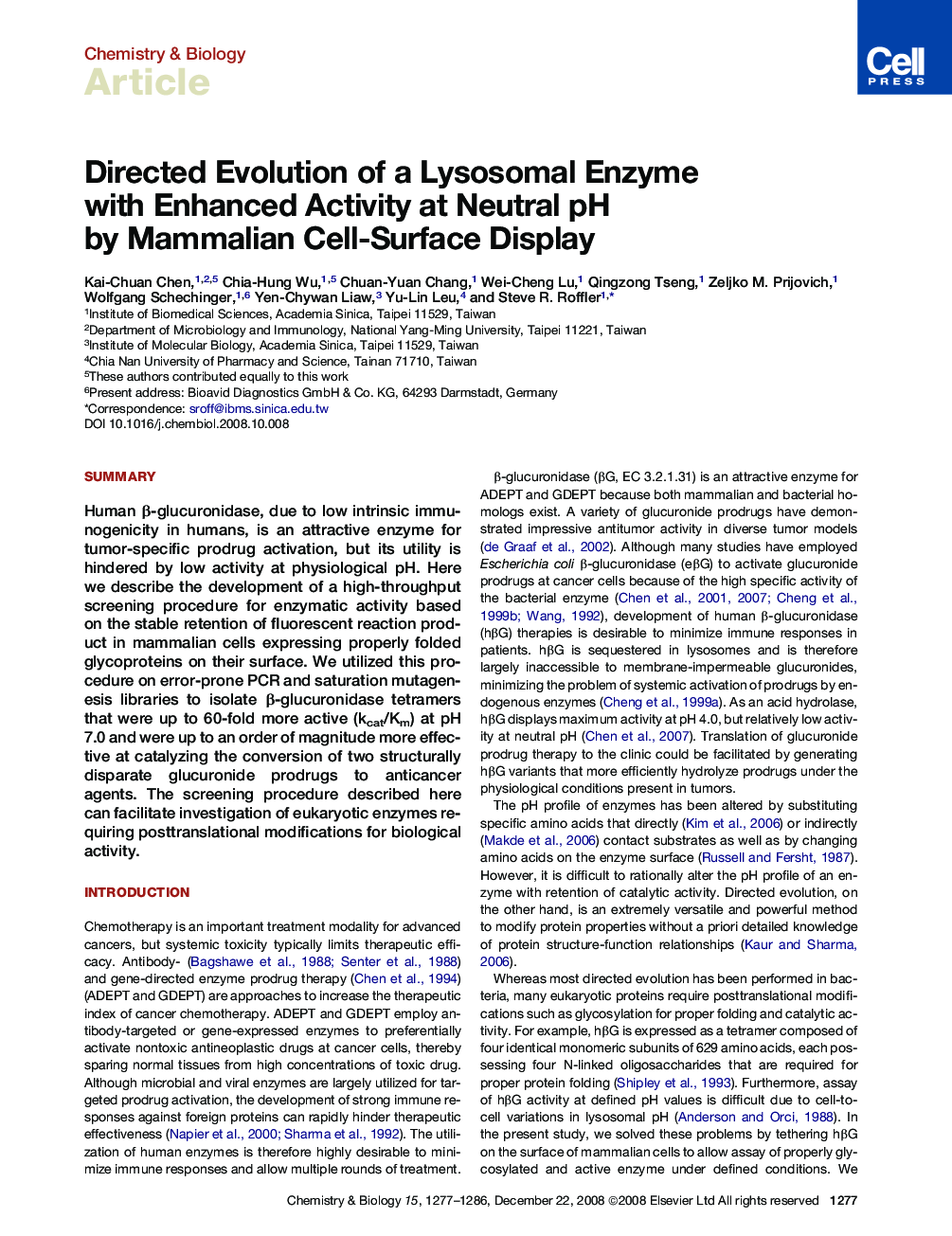| Article ID | Journal | Published Year | Pages | File Type |
|---|---|---|---|---|
| 1392691 | Chemistry & Biology | 2008 | 10 Pages |
SummaryHuman β-glucuronidase, due to low intrinsic immunogenicity in humans, is an attractive enzyme for tumor-specific prodrug activation, but its utility is hindered by low activity at physiological pH. Here we describe the development of a high-throughput screening procedure for enzymatic activity based on the stable retention of fluorescent reaction product in mammalian cells expressing properly folded glycoproteins on their surface. We utilized this procedure on error-prone PCR and saturation mutagenesis libraries to isolate β-glucuronidase tetramers that were up to 60-fold more active (kcat/Km) at pH 7.0 and were up to an order of magnitude more effective at catalyzing the conversion of two structurally disparate glucuronide prodrugs to anticancer agents. The screening procedure described here can facilitate investigation of eukaryotic enzymes requiring posttranslational modifications for biological activity.
